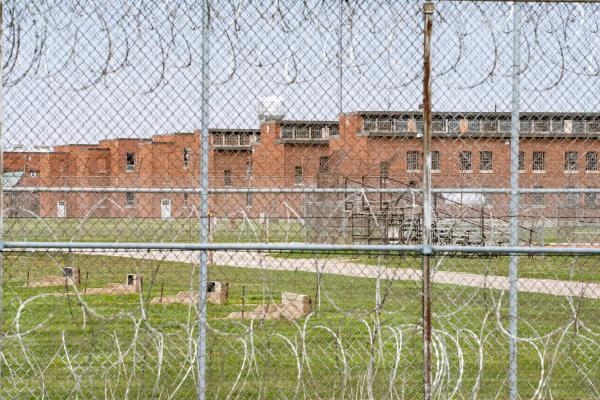Faye Brown was 23 when she went to prison. This week a coroner will report that Brown died at a local hospital after suffering complications from the coronavirus at the age of 67.
Brown’s is a textbook story of retributive justice and unfair sentencing. She was convicted after participation in a robbery to fund a drug habit in which a police officer was killed in pursuit of Brown and two others. Despite no direct role in the death of the officer, in 1974 Brown was convicted of first-degree murder and sentenced with the death penalty, a sentence later commuted to life.
Brown’s case came to the North Carolina Supreme Court in 2009. Her lawyers argued that the law made it possible to deem her sentence complete. And she was sorry. She’d changed. In prison, she’d completed college and worked at local cosmetology school. After 35 years in prison, with one conviction, she was ready to contribute to the wider world, ready to enter civilian life.
Her case was rejected. She was labeled a cop-killer in local papers. None of the news reports carried details of the crime. The court claimed she was a violent menace to society, even though she’d never fired a weapon. During the robbery Brown sat in the back seat of the car.
“Fundamentally it comes down to — is it retribution or is it rehabilitation? And I think that’s the core of the debate,” said Anita Earls, who was then executive director of the Southern Coalition for Social Justice, and now associate justice on the Supreme Court of North Carolina.
I have strained my memory for Brown, trying to see her among the hundreds of women whose birthdays my church celebrates in the prison where she made her life. I wonder if we held hands in a circle, after birthday cake and charades, if she received the blessing I say each month — “you are God’s beloved, and that can never be taken from you.”
On Sunday she would have taken ice cream from us on a melancholy Mother’s Day, as they are in prison, when members of my church offer this small token of comfort. We would have anointed her with oil in worship, and clapped to the songs we sang together in worship together.
If she’d been released in 2010, if the state accepted that her life should not be defined by those few terrible hours as a 22-year-old, it’s possible I would have met Brown on the outside. It’s possible we could have been friends, or sat beside each other in church. We might have worked together to welcome other women out of incarceration. Brown might have told her story of redemption and change, shown all of us what is possible.
Instead, this week Brown succumbed to complications from COVID-19. For months, prison advocates warned that social distancing is impossible in prisons, that, as we’ve seen in other places in the world, its reach within our carceral system is like wildfire.
I began calling every state and local official I could in the first week of March, just as the scope of the pandemic was coming into view. But it would be two weeks before a comprehensive safety plan for prisons was released to the North Carolina public. It would be a month before expedited paroles and at-home detention would enter public conversation. Even then, the numbers for relocation were low, so low it was clear they would not impact the overall picture of the looming crisis.
And so the crisis arrived. The virus coiled through our carceral system, entering through employees and work assignments, taking its toll among the inmate population. Despite warnings, despite calls and advocacy work, the state continued to send the women of the North Carolina Correctional Institute for Women into government buildings on work assignments. They earned $1 a day to clean the buildings where they risked contracting coronavirus. Our congregation has watched with panic and desperation as the women we know and love are infected, the number now nearing 100.
Incarcerated people are the invisible of society. They are social scapegoats, the way those of us on the outside trick ourselves into believing that the tear of our social fabric has been repaired by punishment of those who break the law. Faye Brown reminds us that the truth is never so simple. She reminds us that our carceral system is made for death, that we have failed to honor the lowest expectations for dignity and life.
No one will take responsibility for Faye Brown’s death. She will be calculated into the losses that are required to uphold the social and political lie of incarceration. People listened to orders, followed protocol, upheld the state constitution, protected public safety, and did their duty.
But I know better. Ms. Faye, daughter and friend, advocate, student, hair stylist, grandmother to hundreds of women in prison, to whom she was a comfort and steady joy, died not only of COVID-19. She died of retribution.
Got something to say about what you're reading? We value your feedback!







